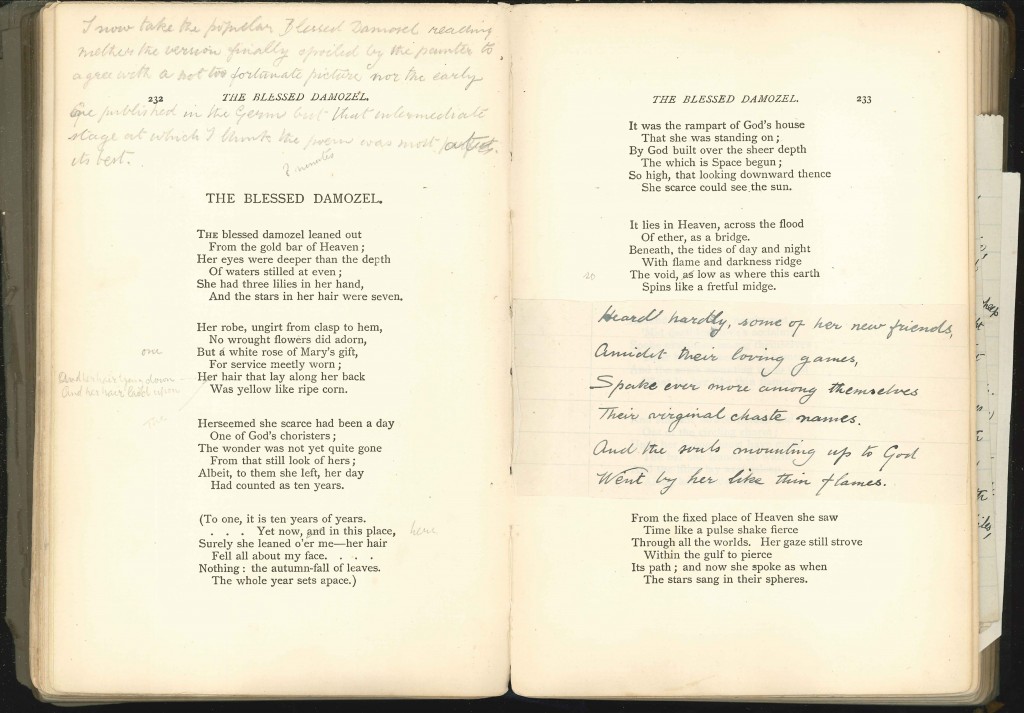The Institute of English Studies (University of London), in collaboration with the University of the Andes, Colombia and the University of Lisbon, is hosting an international conference on “Writers and their Libraries” in Senate House, London on 15 and 16 March 2013. The aim of the conference is to bring together scholars working on the personal libraries of some of the major figures in world literature, science, art, and philosophy (J.G. Ballard, Joseph Conrad, John Donne, John Keats, Montesquieu, Augustus de Morgan, Friedrich Nietzsche, Ferdinand Pessoa, Alejandra Pizarnik, Quevedo, William Turner, David Foster Wallace, G.F. Watts, and many more). Exploring reading habits, note-taking practices, marginalia and other traces of reading experience, this two-day conference will contribute to a growing field within the history of the book — the history of reading — by focusing on the methodological and theoretical questions that underpin this form of investigation. In particular, we want to consider the challenges of reclaiming, representing and interpreting the evidence of readers writing in their books and to do so from a comparative perspective. Our motivation is to move beyond “case studies” to a more comprehensive theoretical approach without limitation as to period, language, or nation.

The subject of this international conference constitutes a rich and lively subject area that combines the interests of book history, literary history, biography, composition history, and other forms of archival research. Writers’ libraries form a rich resource that elucidates the literary life and work in often unexpected ways. All books tell stories about their owners, whether these contain dog-eared pages or scattered pencil marks to extensive reading notes. In the broadest possible manner, a collection of books is a reflection of the owner’s taste and interests. The traces left behind during reading give more specific insight into what captured the attention, and may reveal opinions, thoughts, impressions, convictions, arguments, polemics. Most importantly, the traces reveal what captured the writer’s imagination, giving insight into the transformative process when the reading matter is fed back into the creative process.
Our keynote speakers are Professor H.J. Jackson (University of Toronto), who is the co-editor of S.T. Coleridge’s marginalia (5 volumes in the Bollingen edition) and the author of two important books, Marginalia: Readers Writing in Books (2001) and Romantic Readers: The Evidence of Marginalia (2005), and Professor Dirk Van Hulle (University of Antwerp), who has co-edited Reading Notes, a special issue of Variants: the Journal of the European Society for Textual Scholarship (2004), and who is currently at work (with Mark Nixon of the University of Reading) on creating a digital library of Samuel Beckett’s private collection of books preserved in the author’s Paris flat.
The importance of studying writers’ libraries resides in the universality of its subject: reader’s respond to what they read; while their responses may be highly personal, they are nonetheless also subject to broader cultural tendencies. Where reading responses meet the alchemy of literary creation is no doubt the most fascinating point. As in archaeology, the discrete pieces of evidence, the individual findings, must be brought together into a broader historical account that helps us understand better the phenomena we are studying. This is where this conference will make use of and significantly expand on earlier work. Topics for consideration are the history of personal libraries and book collecting; note-taking practices; writing readers and reading writers; the editing of marginalia (digital and in print); preservation practices (private libraries in the rare books room); the reconstruction of personal libraries.
A conference blog has been set up, where you can find regular updates about the conference, as well as guest posts and relevant news items.
Wim Van Mierlo